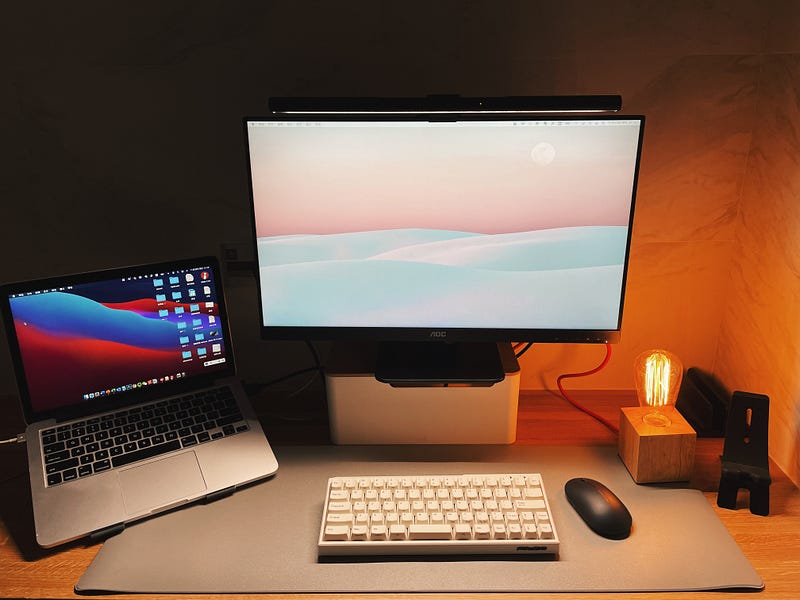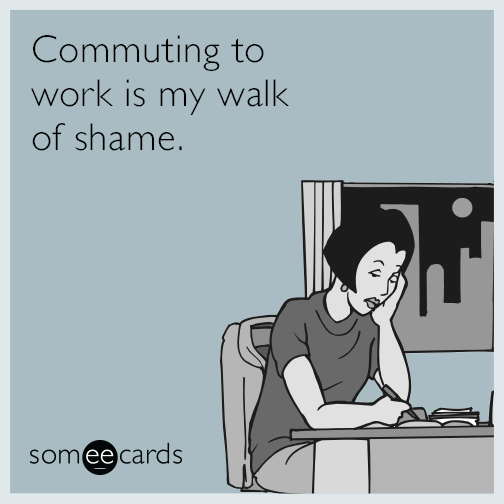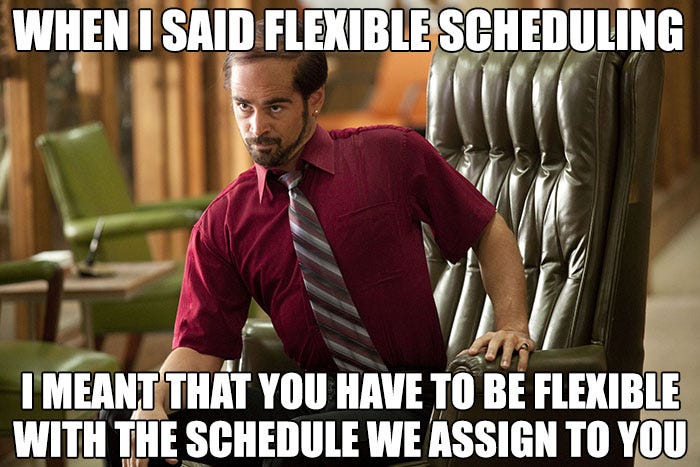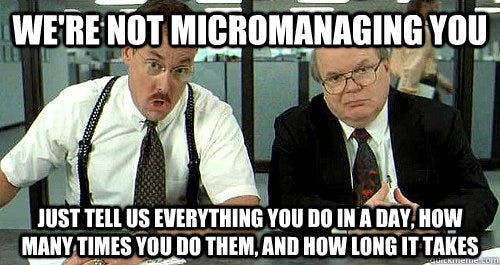Will the Office Restore Its Glory After the Pandemic?

Photo on Unsplash
Why we may never work the same way again
It’s funny to see how every time a tragedy hits us, we think things are going to be normal after some time. Take the case of COVID — the widespread nature of the deadly virus didn’t stop people from looking forward to life “as usual.”
Our professional lives shifted completely when the pandemic hit. Around February, I heard that companies in India were about to open offices. People were excited to see their coworkers (I like the optimism, though).
I joined a startup during the lockdown and haven’t yet met my team in person. The exact morning we had plans to meet up, I received a message — “The cases are rising so as a precaution, we’re canceling the meetup. Stay safe.” Two days later, I tested positive myself.
This made me realize that life “as usual” isn’t coming back. And moreover, people are loving the new normal — work from home.
I see the life of remote work as a drug that most companies were not on before the pandemic. But today, since everyone has got a taste of it, they’re addicted to it.
It’s as if we were having stale cheese all our lives and never wondered if things could be different. But now that we’ve had a taste of the good cheese, very few of us want to go back.
The freedom to work from wherever you want is arguably the best perk you can give to your employees. Plus, the companies also get a lot of benefits — saving money being the most obvious one.
I for one am psyched about this change. Here’s why.
The Walk of Shame

I’ve yet to meet a person who loves commuting. Maybe you do, if you’re the head of a casino and come to the office in a limo, having champagne and caviar as your breakfast. But for the vast majority of us, it either means traffic or an armpit-smelling commute.
The worse part about it is the tremendous loss of time and energy. According to this study, Indians spend 7% of their day commuting to the office. That equals roughly 2 hours per day.
When I had to make it for a meeting on the other side of the town, I was exhausted after traveling on the train for 2 hours — mostly standing (since young men are to give seats to others who need it!). I’d drink an obnoxious amount of water and sit in front of a fan to dry my sweaty shirt.
The only solution to making your commute shorter is living close to the office, usually in a city, where housing costs are high. Plus, there’s no freedom to move anywhere.
This not only costs you but your company — they’re the ones paying for your housing in the form of higher salaries. This is partly why compensation in Silicon Valley is so high. If I can work from home, save my money, the company’s money, and be more productive (thereby making more money), why would I not do that?
So unless you like to sweat, smelling others, or sitting in the traffic, I don’t think you’ll want things to go back to normal.
Setting My Schedule for Maximum Happiness

Before taking a job I used to work on my startup thereby having complete freedom to structure my day. Losing this freedom was my number one fear while joining a company — the thought of not being able to meditate and exercise in the morning was a little horrifying, I admit.
With the work-from-home setup, I can do all that, and still have time to write before my first meeting starts. If I do it right, I can wake up 5 hours before my first meeting, meditate, exercise, write, have breakfast and waste a little time before I begin working.
It gives me the opportunity to do the things that give me maximum satisfaction. With the usual office routine, you can hardly find so much time.
Work takes more time to be completed in the office (which we’ll see below) and whatever time or energy is left, is eaten up by the commute. By the time I used to get home, I either wanted to sleep or switch on Netflix.
The remote setup lets me follow my hobbies and passions not only on the weekends but every day of the week.
Productivity Is Not All About You
Personal productivity isn’t personal. It depends a lot on what’s going on around you. The environment and the people matter more than your willpower or concentration.
Having no control over what to do with your workspace is disheartening. All of us want different cooling temperatures, lighting, sounds, the direction of the desk, types of chairs, etc. This isn’t available in the office.
Offices are home to ad-hoc engagements people hate. Just when you think you can start working on your project, a co-worker pops up with questions or your manager calls a sudden meeting to discuss “the thing” about “the thing” which is crucial to achieving “the thing.”
A 2005 study, proved that personal control directly translates into job satisfaction. Another survey found that people took an average of 2.5 days a year of sick leave just because they weren’t feeling “comfortable” — in other words, they were not motivated because their office environment wasn’t right for them.
Letting people work from their favorite places is the biggest boost to productivity and satisfaction — perhaps more than the bonuses they get once a year. There’s no office politics, gossiping, commute, and fewer interruptions in general. In short, you’re in control. And that feels great.
The Manager Breathing Down Your Neck

Managers are funny creatures — they want to have an eye on people to see what they are working on. The moment you’re found slacking off, they’ll pounce and have a “quick conversation” about what’s going on.
The fact is you often don’t need many managers if you trust your employees and hire the right ones in the first place. Smart people don’t need to be managed. They manage themselves, get the work done, and keep those around them accountable.
Challenges
Life doesn’t give us black and white choices — if it did, I wouldn’t be writing this. Remote work is great, but there are still a few challenges we need to solve to make it sustainable.
Communication
As humans, we do bond better when we meet a person face-to-face which is not the same as video conferencing. Most communication is non-verbal which makes it harder to work with people you’ve never met before.
Since this is the case with me right now, I struggle to bond with the team remotely which would’ve been naturally done over a single office lunch. This is often because all interactions in the remote world work-related. Very few people schedule calls “just for fun” which is when you get to know a person the most.
Even if remote companies can plan social events and calls to have fun, the spontaneity of social interactions will be missing — I guess we can either have our cake or eat it.
Culture
Maintaining culture in a remote environment is a grave challenge. Yet, it’s not impossible. Some ways to do maintain culture include surveying people regularly, nominating each other for showing values of the core culture and improving communication.
Ultimately, it boils down to communication — companies who crack the remote communication code and thereby have a great culture will have a huge upside over their peers.
What Does the Future Look Like?
Upwork estimates that by 228, 73% of all departments will have remote workers. I can quote study after study to drive either point home. But all I can say is that the future is in our hands.
The employees are the ones who get to decide what works best, not the companies. And once big companies start shifting to remote work, as they’ve already done, others will push their companies to do the same.
Just imagine what your office-going friend’s face will look like when you flaunt the flexibility of your job and the freedom to work from anywhere. He’ll either go back to get it for himself or switch to a company that gives it to him.
Millennials are already willing to give up other work benefits for a more flexible working space.
That said, the office is not going to go away completely — but the meaning of the word “office” will change. It will not be a place where you’ve to show up at 9 and leave at 5. It’ll more likely be a place for occasional gatherings, meetups, and fun events. Basically, a place where people can come together when they’re tired of looking at screens.
How do you think the future of the office will look like? And more importantly, are you ready for that change? That’s for you to ponder upon.